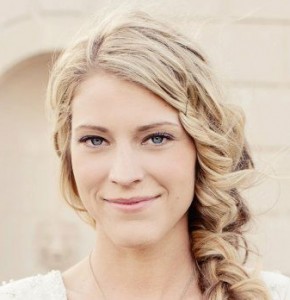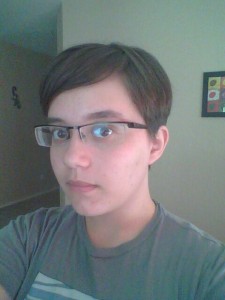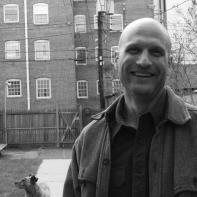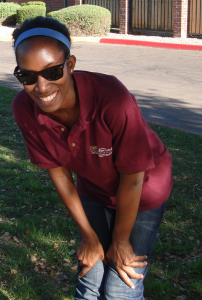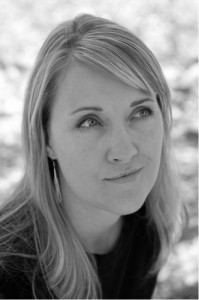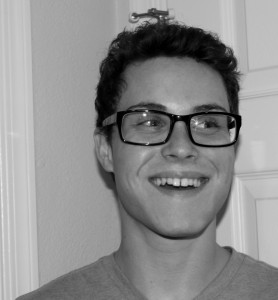 I want to use the opportunity of this blog post to discuss something I’ve observed often in my thirty years of teaching creative writing, most of it in an MFA program. Going into graduate school, a person often thinks this will be the real trial: Do I have what it takes to shine? Will I make it through? The real test comes after, when you don’t have weekly workshops to keep you productive, when you don’t have a circle of friends and competitors clamoring to see your next opus, when you discover that the writers on faculty who supported you so diligently now have a new crop of students to support, and that, frankly, (almost) no one gives a rat’s ass whether or not you write another beautifully nuanced poem or story or lyric essay.
I want to use the opportunity of this blog post to discuss something I’ve observed often in my thirty years of teaching creative writing, most of it in an MFA program. Going into graduate school, a person often thinks this will be the real trial: Do I have what it takes to shine? Will I make it through? The real test comes after, when you don’t have weekly workshops to keep you productive, when you don’t have a circle of friends and competitors clamoring to see your next opus, when you discover that the writers on faculty who supported you so diligently now have a new crop of students to support, and that, frankly, (almost) no one gives a rat’s ass whether or not you write another beautifully nuanced poem or story or lyric essay.
The plummet that many MFA graduates experience begins gradually. You’ve got that degree in hand! You finished your thesis! You’ve worked damned hard for two (or three) years. Now you want just to chill for a couple weeks, stretch your head, shake your fingers and ponder what next while you look for a job or begin your next adventure. About three months in, you begin to notice that either you aren’t writing, or what you’re writing would not past muster in the rigorous workshops you so recently attended. After another couple of months of this, the panic and depression set in. You’ve lost your mojo. Who knows if you’ll ever get it back?
The more you worry, the worse the writing/not writing becomes. You remember every hesitation your thesis adviser expressed about your work. You remember the rejections that have piled up—sure, at the same rate they were piling up when you were in graduate school, but wasn’t the degree supposed to change all that? You remember the criticism leveled at your story/poem/essay by someone who—you’ve just now heard—has published a piece in a prestigious venue, or—worse yet!—had their thesis accepted for publication, which everyone knows almost never happens.
I’ve noticed that this state befalls younger MFA graduates especially, the people who go straight from an undergraduate program into graduate school. Often, it’s as undergraduates that the possibility that one is a writer begins to take shape. Maybe you’ve never shown your poems to anyone, and suddenly, you take a creative writing class and everyone is praising your work in a way you never dreamed would happen. Or the work isn’t praised, but you’ve a passion that helps you withstand the blistering criticism. However the experience plays out, you find a way into an MFA program to continue your growth as a writer, and immerse yourself anew. By the time you finish your MFA at 24 or 25, you’ve had a good four to six years of uninterrupted fostering. And then, suddenly, it’s gone.
People who’ve been out in the world a few years before going back to school to pursue an MFA have already experienced the world’s utter disregard of, and investment in, their writing. Many of them have written in solitude and obscurity for the middle part of their twenties, so when they get to graduate school they’re a little stunned that their work suddenly gets so much attention. Which is not to say that the older MFA graduate is exempt from post-partum depression. Sometimes it’s worse. They know how this isolation feels, they’ve been there before, and now—despite the hard work, the degree—they’re back again. Maybe they’re working the same jobs they were working before they went to grad school. Talk about depressing! What’s a writer to do?
The first thing is to prepare yourself. The terminal degree plummet is very like post-partum depression. If you know such a thing exists, when you wake up at 3 a.m. with a screaming, inconsolable baby on your hands and have thoughts of throwing him out the window, you can take a step back, recognize what you’re feeling, and deal with the situation like a reasonable human being. You are not the only one who feels this way. People have felt this way before and survived. This, too shall pass. Good mantras to cultivate.
Part of that preparation is to cultivate, over the time you’re in your degree program, a close circle of people whose work you admire and whose opinions you respect. These people will not include your teachers. Though you might have looked primarily to your teachers for guidance, they have now (it’s been three months, remember? The new semester’s already started!) turned to their next batch of students. Now, you have your peer group. And though one of you may be in Frankfurt and the other in L.A., the miracle of technology allows you to form an online community that will get you through the darkest of these days.
This peer group will also be a lifeline as you struggle to meet like-minded people in the place you find yourself after graduation. I’ve known former students who, after moving to the city where they’ve always dreamed of living, discover that meeting other writers to hang out with and show their work to is not always an instant process. Writers tend to be solitary folk. Sometimes, it takes a while before you meet the person who introduces you to her cohort of friends that includes a couple people who become your life-raft, because they get you and your work in a way that nobody ever has.
In my first year of graduate school, my teacher Charles Wright told our workshop, “Many are called. Few are chosen.” Does anyone ever believe he or she will not be among the chosen? But over time, most people—surprising people, including some of the most talented, the ones who seem the most driven, the luckiest ones—will go on to pursue different kinds of lives. As Katherine Anne Porter said, “Writing is, above all, a vocation. No one’s a writer ‘on the side.’” But for those of you who stay together in your close, narrowing circle of supporters, reading and commenting on each other’s work that may not see publication for years or at all, reading and commenting on work that will win prizes and awards and fellowships, you will ideally come to understand that what matters is the work itself—and that you’re doing it, and doing it to the best of your ability, and can’t conceive of a life without it.




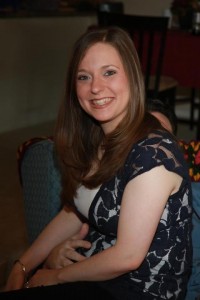 Once, she was asked to list five books she’d bring with her on a deserted island and without fail her answer remains: Harry Potter and the Goblet of Fire, The Scarlet Letter, a collection of Allen Ginsberg’s poetry, To Kill a Mockingbird, and Billy Collin’s The Trouble with Poetry. Her favorite reading reflects her own writing style – a combination of youthful fancy and shenanigans mixed with sarcasm and adult confession.
Once, she was asked to list five books she’d bring with her on a deserted island and without fail her answer remains: Harry Potter and the Goblet of Fire, The Scarlet Letter, a collection of Allen Ginsberg’s poetry, To Kill a Mockingbird, and Billy Collin’s The Trouble with Poetry. Her favorite reading reflects her own writing style – a combination of youthful fancy and shenanigans mixed with sarcasm and adult confession. Arjun started working with Superstition Review over the past summer as a guest contributor with his blog series, “Dispatches From Delhi.” Despite being relatively new to the world of editing/publishing, Arjun finds his position intellectually stimulating and instrumental in giving him his first glimpse into the actual working side of writing. He finds his work to be a comprehensive learning experience in meshing creativity with professionalism, an invaluable skill of those who strive to make a living through their writing, a skill he is glad to have the chance to practice.
Arjun started working with Superstition Review over the past summer as a guest contributor with his blog series, “Dispatches From Delhi.” Despite being relatively new to the world of editing/publishing, Arjun finds his position intellectually stimulating and instrumental in giving him his first glimpse into the actual working side of writing. He finds his work to be a comprehensive learning experience in meshing creativity with professionalism, an invaluable skill of those who strive to make a living through their writing, a skill he is glad to have the chance to practice.